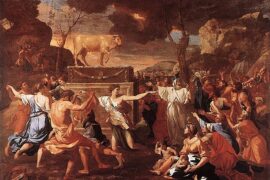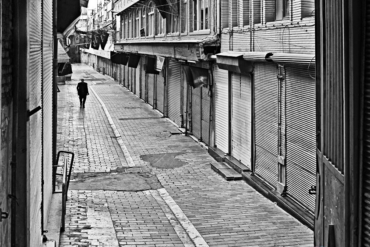“The benevolent G-d who, on our behalf, brought retribution upon Pharaoh… who, in his wrath, struck all the first-born of Egypt, and brought out his people Israel from their midst to everlasting (eternal) freedom…” (Hebrew liturgy, Ma’ariv, Nusaḥ Ari)
What does it mean, eternal freedom?
That freedom which is beyond time and space, transcendent and intrinsic to the essence of every Jew.
The culture of Egypt was one of cycles, endless cycles, a philosophy bound happily in space and time, the tide of the Nile. They chained themselves to nature, resigned to servitude, and thus they enslaved others.
Freedom eternal is the smashing of these bonds, the ability to perceive the end from the beginning, and the beginning from the end. To act with this knowledge, to build with this focus.
Once we were slaves in the land of Egypt, and since then there have been no chains other than those we place on ourselves, the chains of Alexandria.
Freedom is an inherent quality of the Jew, as even in our language we call one who is free “בן חורין” – son of freedom. It is not an adjective, something that can be stripped, but part and parcel with the essence of our people. The active negation in thought, speech, and deed of this freedom finds its source in denial, self-denial, falsehood, and dishonesty.
What’s more regarding this freedom, this transcendent quality glowing through the eyes of bodies of flesh?
This freedom is rebellion, the natural state of the Jew. We are rebels by heart and mandate, for is it not noted by the nations, in their condemnations and praise, that the Jew is a walking paradox? That the systems of this world never quite have space for the soul of the Hebrew?
Is it not said that there is no revolution without a Jew in the room, and that the Jew is not bound to the constellations?
Did Avraham, our Father, peace be upon him, not take a sledgehammer to the wrought iron bonds of a corrupt society, in the name of Truth, singular?
Once we were slaves in the land of Egypt. Once, and never again.





